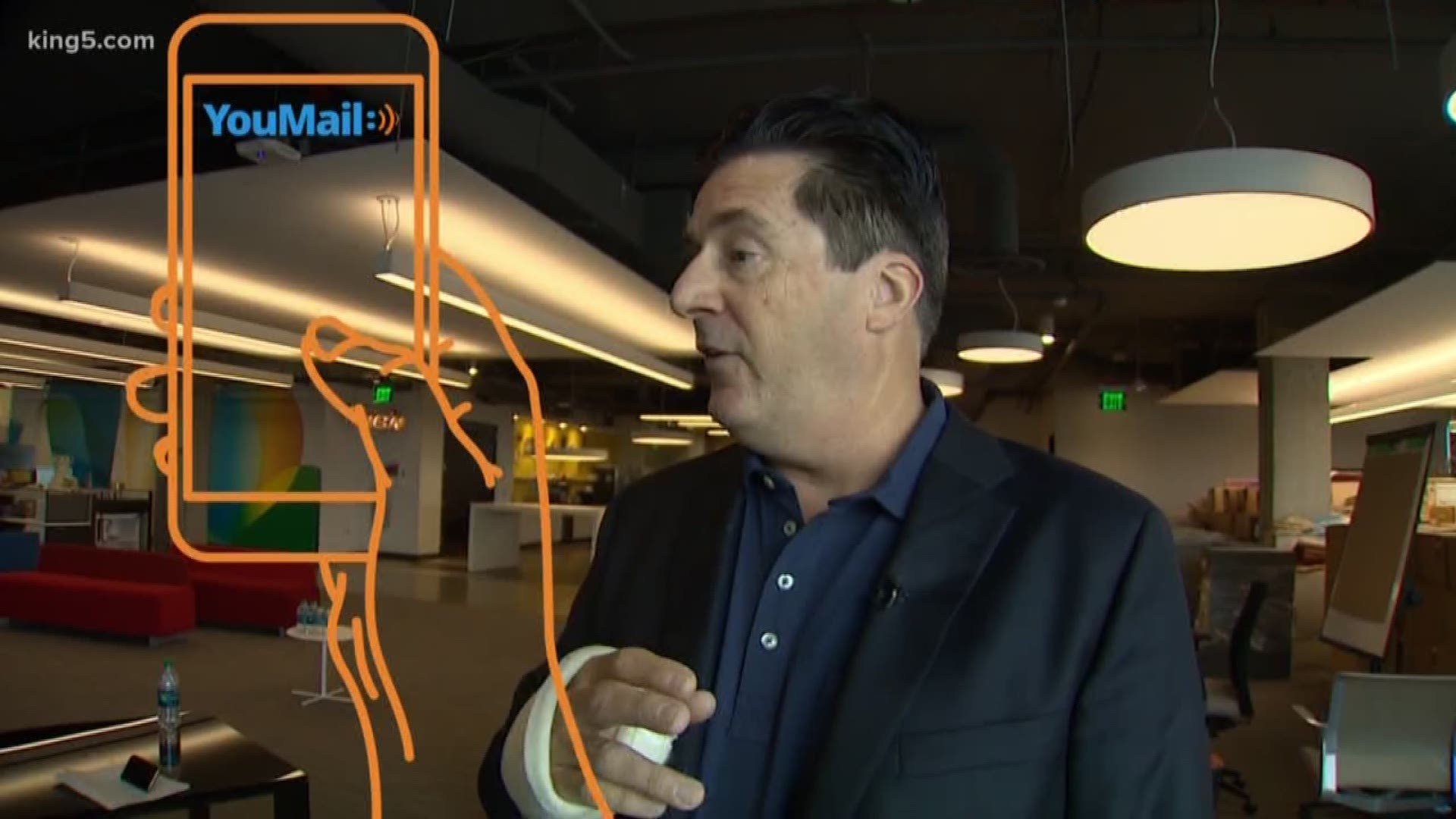SEATTLE — Seattle area residents are getting a lot of automated calls, or "robocalls." There are apps and programs to stop them, although nothing is foolproof.
We asked YouMail app's CEO Alex Quilici to help us understand the problem in Washington and he gave us an idea of how to stop them.
Michelle: Are we getting a lot of robocalls?
Alex: You guys are getting a lot of robocalls. You’re getting nine per person, almost 50 million in a month - but that’s a lot better than the country as a whole. The country as a whole got five billion in the last month, and it was 15 per person.
Michelle: So we should consider ourselves lucky.
Alex: Consider yourselves lucky even if it doesn’t feel that way.
Michelle: Are they all scams?
Alex: About half the robocalls that come in are scams. They’re trying to get you to give them your credit card number to get a fictitious lower interest rate. They're trying to give you a work at home opportunity that doesn’t exist, or that you have to pay for.
About a quarter are payment reminders. You fall behind, and then the world starts calling you.
Then the last quarter are the ones you really want. CVS has your prescription ready, the school is having a snow day - that sort of thing.
Michelle: Sometimes we think older Americans fall for that, but you’re saying millennials fall for some of these robocalls.
Alex: We’re seeing everybody fall for different kinds of scams. If you are older you are more likely to fall for health-related scams like a fake Medicare problem.
If you are middle-aged, it might be getting your interest rates reduced, or your student loan debt reduced.
If you’re a millennial, it’s often work from home or around student loans. It really can feel enticing to be able to hear an offer on the phone that says "we can just get rid of your student debt." Unfortunately, they won't, and they’re going to still your identity.
Michelle: What can we do on a basic level?
Alex: For consumers, you have to be a wise consumer which means: don’t answer a call you don’t expect.
Secondly, at least on your mobile phone, get some sort of app or service that can help block robocalls. None of them are perfect, but apps like ours, YouMail, will dramatically cut down the number that you get.
Finally, a lot of us reflexively call numbers back when they call us. You just have to stop that habit and research a number before you call it back.
Michelle: Because no matter what, we’re still going to get the calls.
Alex: You’re still going to get the calls. Everybody’s working on it. There’s regulation, there are carriers, there are some third-party apps like us, but it’s a massive problem. It's going to take a while before we really see a dent in it.
Michelle: So give us a pitch for YouMail since you’re the CEO.
Alex: YouMail is a mobile app that you just download, and we try to play and "out of service" message to the robocallers because then they think your phone number isn’t working. They stop calling it. We are not perfect, but we’ll dramatically reduce how many you get.
Michelle: Is yours the only one like that?
Alex: Our app is the only free one that we are aware of. What we see a lot of people doing is they’ll get a service like T-Mobile has which says "scam likely," and then they’ll also add the YouMail app because we'll block a lot of them. And, it’s all free, so what better thing than trying a free solution?
Check out YouMail in the Apple store and in Google Play.

